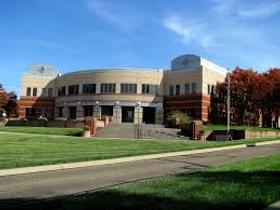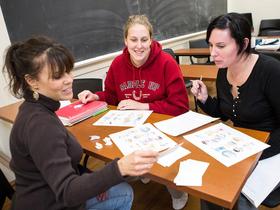While libraries and book vendors are teeming with information about preparing for a four-year college, there is relatively little available to help students prepare for the community college experience. Thomas J. Snyder, president of Ivy Tech Community College, hopes to fill that niche, with his new guide titled, The Community College Career Track: A Guide for High-Schoolers, Career-Changers, Parents and Advisors. Snyder uses his experiences in both the academic and corporate sectors to offer community college-bound students and their parents the help they need to navigate the community college system adeptly. The guide focuses on helping students get on the right career track, using community college as a launching pad.
A Different Path to Opportunity
Snyder believes that community college can be an effective path to a rewarding, lucrative career, additional education, or a combination of the two. Snyder told the Northwest Indiana Times that with many four-year students graduating with as much as $80,000 in debt and no job prospects, the middle class is now looking at the possibility that a four-year degree may not be the most cost-effective path right out of high school. As Snyder interviewed numerous community college students in preparation for writing his guidebook, he realized that the majority were landing good jobs right out of school, with little or no debt to worry about.
“Whether it is a traditional student or a displaced worker, community colleges offer an opportunity to pursue a degree or certification that leads directly to employment,” Snyder stated in his Northwest Indiana Times op-ed piece. In addition, these schools offer a valuable resource to vets looking for career opportunities after military duty and professionals in search of a new career path. Community colleges offer the opportunity to explore career options from nursing to culinary arts.
In addition to the industries currently available for community college graduates, additional opportunities are opening up in areas like biotechnology, sustainable energy, and advanced manufacturing. These fields allow community colleges to customize training to the unique employment needs of the area, ensuring local communities receive highly skilled workers and that students gain employment soon after college graduation. Snyder sees all of this as opportunities for community colleges and students alike, but only if students learn how to make the most of their community college experience.
Preparing Students for Higher Education
Completion rates are at the crux of community college success. Unfortunately, those rates are less than stellar at many community colleges today, with some only graduating around half of all the students that enroll in their programs. Unlike four-year schools, most community colleges do not have the resources to provide students with the support they often need to succeed, Snyder explained in an interview at Inside Higher Ed. In addition, many community college students are first-generation college students in their families, which means they may not get the benefit of advice or guidance from their parents.
Snyder’s book is specifically designed to speak to those students, helping them understand the rigors and complexity of higher education to further their odds of success. Whether community college students are looking at those years as a means to prepare directly for a career or take their education to the next level, students will get plenty of good information from this guide. Snyder said the book was created for students, parents, and career-changers, but can also be useful for college advisors, employers, and others in the workforce. The purpose of the book is to give readers an “inside look” at the community college network, to help them navigate their own school more clearly.
In addition to the lower cost, Snyder states in his book that students benefit from the teaching focus at community colleges. Students at these schools typically have a greater opportunity to connect with professors, who offer mentoring in addition to class instruction. In contrast, large research universities do not generally offer that personal approach to education, and students are often left to work through complex material from labs and lectures on their own. For students that need a more personal approach, the community college environment may be more conducive to success, at least during the first two years of higher education.
Snyder also advocates in his book for beginning a bachelor's degree program at a community college, with the intention of transferring to a university or four-year college after two years. Snyder says the acceptance of community college credits is becoming a state responsibility, which is good news for students who are worried about transferring all of their community college credits to a four-year school. Snyder believes the model of the future is guaranteed admission into a four-year school with an associate degree and acceptable GPA from a community college.
More About the Book
The Community College Career Track: A Guide for High-Schoolers, Career-Changers, Parents and Advisors is available through Wiley. According to the publisher’s website, the guide also offers advice on saving money in college by earning a two-year degree and launching a well-paying career after graduation. The book also delves into the basics of retraining for second careers, particularly for displaced workers unable to find employment in their current industry. The book places particular emphasis on STEM (science, technology, engineering, and mathematics) degrees and healthcare programs at local community colleges.
For students thinking about community college for their higher education needs, Snyder’s book may be just the ticket for preparing for this next step. With plenty of valuable, timely advice, Snyder offers an inside look at the community college system to help students of all ages succeed in their two-year degree efforts.
Questions? Contact us via Facebook. @communitycollegereview




















































































